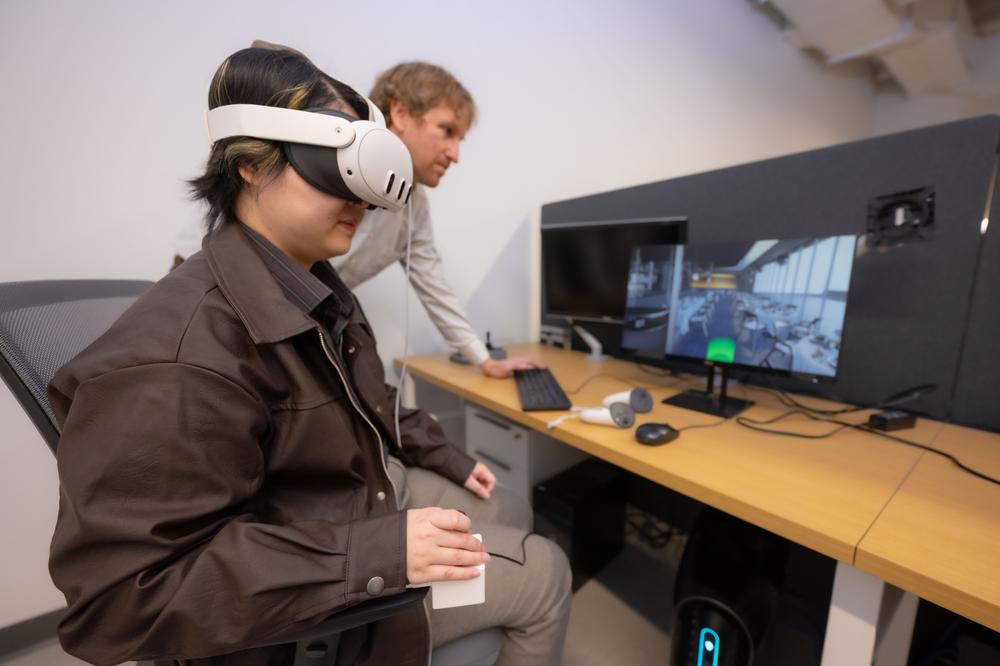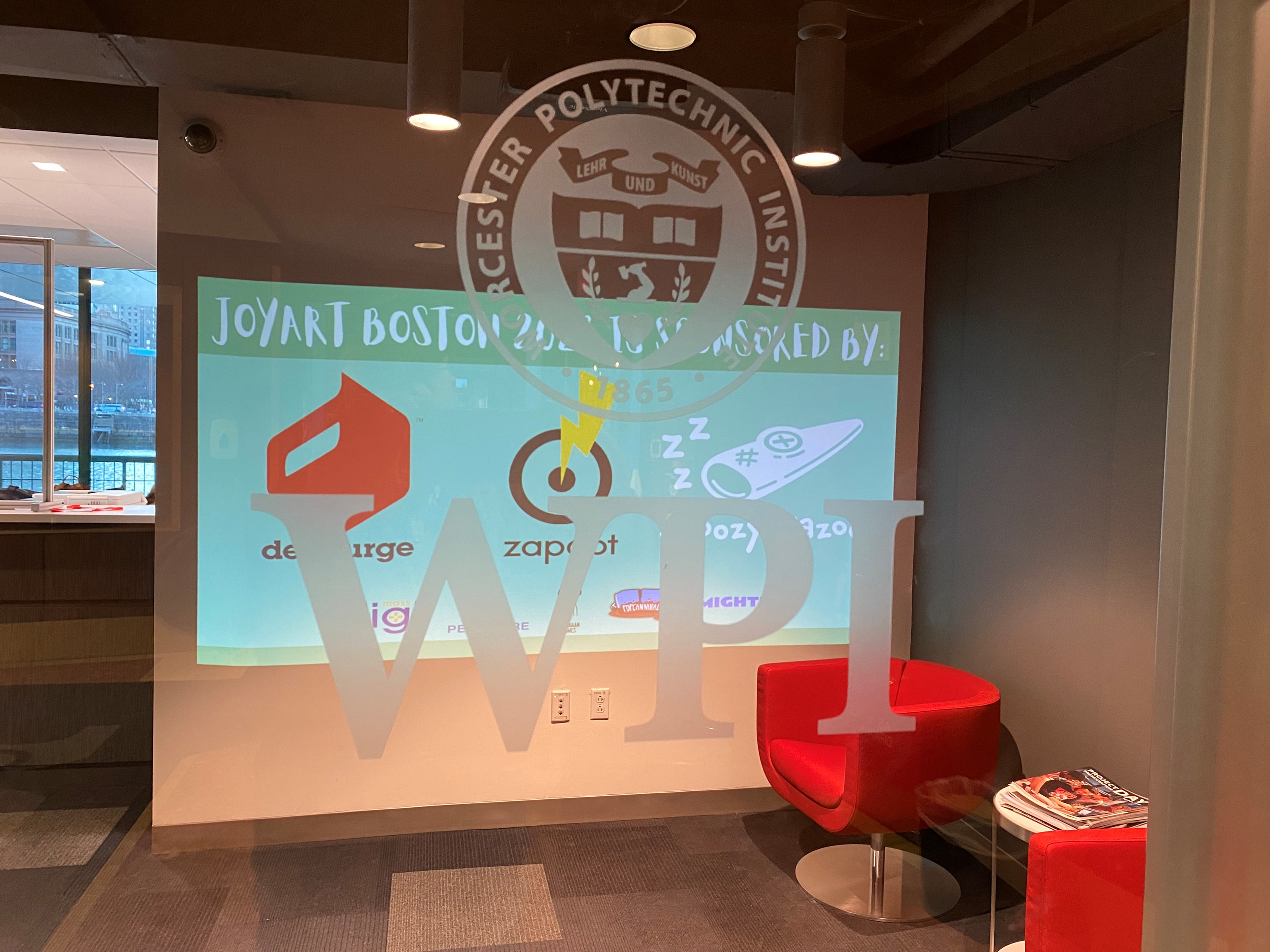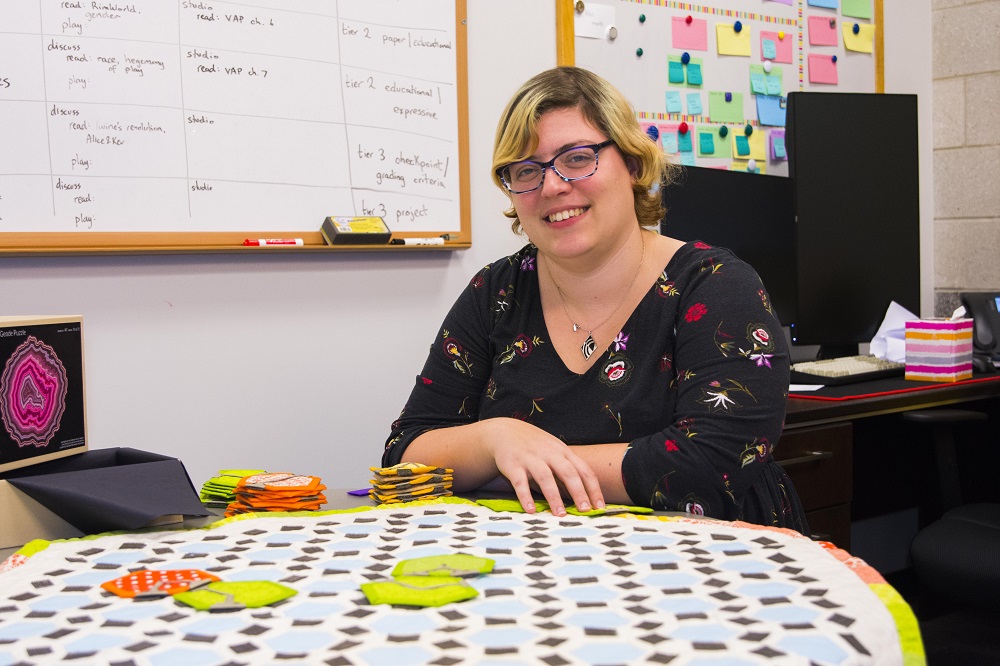"Sticky Pixels," an interactive robotics-based installation created by four WPI juniors, is on display this week at the Boston Museum of Science. Part of the museum’s National Robotics Week Celebration, the installation, which transforms sticky notes into music through robotic systems and user interaction, can be seen in the main area of the Cahners ComputerPlace.
Designed by Christopher Earley, a Robotics Engineering major from Sugar Land, Texas, Dylan James, a double major in Interactive Media & Game Development, and Computer Science from North Andover, Mass., Nick Smith, a Robotics Engineering major from Franklin, Mass., and Seth Crocker, an Electrical and Computer Engineering major from Braintree, Mass., "Sticky Pixels" has a 4 by 6-foot board on which users place Post-It notes of different colors. A robotic camera moves across the board scanning the notes and turning the visual input into musical notes.
The installation randomly chooses different instruments, allowing each song to be a different experience. Users can also manually drive the camera using a joystick, choosing which notes they want the board to convert into music. Occasionally a scraper robot passes over the board, pulling off some of the Post-It notes to make room for new user input.
The students developed the installation as part of their Interactive Qualifying Project (IQP), one of two major projects that are required for graduation from WPI. Their advisor is Professor Joshua Rosenstock of WPI’s Humanities and Arts Department and Interactive Media & Game Development undergraduate program, which launched in 2005. "Sticky Pixels" blends aspects of robotics engineering and IMGD, and is part of Rosenstock’s research project called "Interactive Public Art," which seeks to develop experimental interfaces for creative social expression.
The IMGD program integrates the artistic and technical aspects of game creation. Students receive a base education in both areas, and then select an artistic or technical concentration as the focus for the remainder of their program. The major is supported by WPI’s computer science and humanities and arts departments.
This fall, WPI will become the only university to offer bachelor, master, and doctoral degrees in robotics engineering with the addition of the PhD program. WPI was the first university to offer a bachelor’s degree program in robotics engineering; a master’s program in the discipline was launched in 2009.
In addition to expanding its graduate offerings in robotics engineering, WPI has sponsored programs that foster the use of robots to solve important societal problems and encourage consideration of the societal implications of this new area of technology. In 2009, WPI held the national Robotics Innovations Competition and Conference. Supported by the National Science Foundation, the competition challenged undergraduate and graduate students to engineer innovative robotic solutions that improve the quality of life. On April 10 WPI sponsored a RoboEthics Symposium that explored the ethical issues raised by the rapid advancement of robotics.
WPI has also broadened its commitment to pre-college outreach programs that build excitement for robotics and other STEM (science, technology, mathematics, and engineering) fields. For example, the university, which sponsors two Worcester high school teams in the FIRST robotics competition created by advisory board member Dean Kamen, WPI Class of 1973, recently inaugurated a new regional FIRST competition held on the WPI campus.


